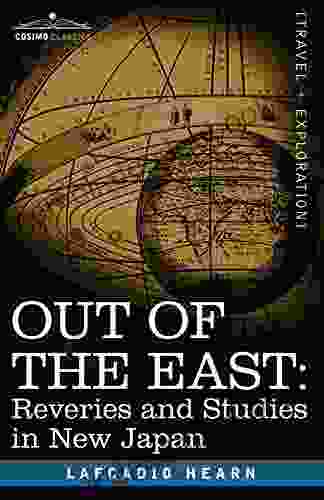Radical Enlightenment and the Intellectual Origins of Modern Democracy

The Enlightenment, a pivotal era in intellectual history, witnessed the emergence of radical ideas that profoundly shaped the foundations of modern democracy. From the mid-17th to the late 18th century, a group of forward-thinking philosophers, known as the Radical Enlightenment, challenged established norms and laid the groundwork for a more egalitarian and just society.
This article delves into the intellectual origins of modern democracy by examining the key concepts and thinkers of the Radical Enlightenment. We explore their critique of absolutism, their belief in human rights, and their ideas on the social contract and limited government. By understanding the ideas of these radical thinkers, we gain a deeper appreciation for the origins and enduring principles of democracy.
4.6 out of 5
| Language | : | English |
| File size | : | 1202 KB |
| Text-to-Speech | : | Enabled |
| Screen Reader | : | Supported |
| Enhanced typesetting | : | Enabled |
| Print length | : | 295 pages |
Challenging Absolutism
The Radical Enlightenment was characterized by a rejection of absolutism, a political system in which unlimited power is concentrated in the hands of a single ruler. Philosophers such as John Locke argued that absolute monarchy was inherently unjust and incompatible with human freedom.
In his seminal work, "Two Treatises on Government," Locke proposed the idea of a social contract, in which individuals voluntarily surrender some of their rights to a government in exchange for protection and security. This concept undermined the divine right of kings and laid the foundation for a government based on the consent of the governed.
The Rise of Human Rights
The Radical Enlightenment also emphasized the importance of human rights, arguing that they are inherent and inalienable. Thinkers such as Jean-Jacques Rousseau believed that all individuals are born with natural rights, including the right to life, liberty, and property.
Rousseau's "Social Contract" further explored the concept of human rights, arguing that individuals could only truly be free and equal if they were willing to give up some of their individual rights for the common good. This idea became a cornerstone of modern democracy, where citizens are protected by a system of laws that guarantee their fundamental rights.
The Idea of the Social Contract
The social contract, as proposed by philosophers such as Thomas Hobbes and John Locke, was a central concept in the Radical Enlightenment's vision of society. They argued that individuals create a government through a voluntary agreement, known as a social contract, in order to protect their natural rights and promote the common good.
This idea shifted the focus of political authority from divine right to the consent of the governed. It established the principle that governments derive their legitimacy from the people they represent, and that citizens have the right to hold their leaders accountable.
The Concept of Limited Government
Building on the concepts of the social contract and human rights, the Radical Enlightenment philosophers advocated for the idea of limited government. They believed that government should be restricted in its powers to prevent it from becoming tyrannical. This concept was encapsulated in the principle of separation of powers, where different branches of government are given distinct responsibilities to prevent the concentration of power in a single entity.
Thinkers such as Montesquieu argued that by dividing governmental power into separate branches, such as the executive, legislative, and judicial branches, it would be more difficult for any one person or group to gain absolute control and abuse their authority.
The Impact of Radical Enlightenment Ideas
The ideas of the Radical Enlightenment had a profound impact on the development of modern democracy. They provided the intellectual foundation for revolutions in both Europe and the Americas, including the American Revolution and the French Revolution.
The principles of human rights, limited government, and the social contract became enshrined in various constitutions and declarations of independence, shaping the political systems of countless nations. These ideas continue to inspire democratic movements and serve as a reminder of the ongoing struggle for equality, justice, and individual liberty.
The Radical Enlightenment played a crucial role in the intellectual origins of modern democracy. By challenging absolutism, emphasizing human rights, and proposing the concepts of the social contract and limited government, these philosophers laid the foundation for a more just and egalitarian society.
Their ideas continue to resonate today, shaping our understanding of democracy and inspiring our efforts to build a better world for all. By delving into the intellectual origins of democracy, we gain a deeper appreciation for the principles that have shaped our political systems and the enduring legacy of the Radical Enlightenment.
References
- Cassirer, E. (1951). The philosophy of the Enlightenment. Princeton University Press.
- Locke, J. (1690). Two treatises of government. New York: Dover Publications.
- Montesquieu, C. L. (1748). The spirit of the laws. Cambridge University Press.
- Rousseau, J.-J. (1762). The social contract. Oxford University Press.
4.6 out of 5
| Language | : | English |
| File size | : | 1202 KB |
| Text-to-Speech | : | Enabled |
| Screen Reader | : | Supported |
| Enhanced typesetting | : | Enabled |
| Print length | : | 295 pages |
Do you want to contribute by writing guest posts on this blog?
Please contact us and send us a resume of previous articles that you have written.
 Novel
Novel Page
Page Text
Text Reader
Reader E-book
E-book Paragraph
Paragraph Shelf
Shelf Glossary
Glossary Bibliography
Bibliography Foreword
Foreword Preface
Preface Synopsis
Synopsis Scroll
Scroll Codex
Codex Tome
Tome Classics
Classics Library card
Library card Narrative
Narrative Autobiography
Autobiography Reference
Reference Encyclopedia
Encyclopedia Dictionary
Dictionary Narrator
Narrator Character
Character Resolution
Resolution Card Catalog
Card Catalog Borrowing
Borrowing Periodicals
Periodicals Study
Study Research
Research Scholarly
Scholarly Lending
Lending Academic
Academic Journals
Journals Reading Room
Reading Room Rare Books
Rare Books Special Collections
Special Collections Interlibrary
Interlibrary Literacy
Literacy Theory
Theory Steven J Rolfes
Steven J Rolfes Matt Ziselman
Matt Ziselman Lasse Rouhiainen
Lasse Rouhiainen Courtney Lynn Rose
Courtney Lynn Rose Joseph P Ficalora
Joseph P Ficalora Henry James
Henry James Rose Andersen
Rose Andersen Krzysztof Miklaszewski
Krzysztof Miklaszewski Udi Ledergor
Udi Ledergor Julius Bailey
Julius Bailey Amit Agrawal
Amit Agrawal Jim West
Jim West Beda S
Beda S Anthea Sharp
Anthea Sharp Susan Page Davis
Susan Page Davis Serenity Stitchworks
Serenity Stitchworks Natalie Dean
Natalie Dean Michael Calvin
Michael Calvin Paul Compton
Paul Compton Jan Horrox
Jan Horrox
Light bulbAdvertise smarter! Our strategic ad space ensures maximum exposure. Reserve your spot today!

 Dustin RichardsonThe Claddagh Emerald Isle Mc: A Timeless Symbol of Love, Loyalty, and...
Dustin RichardsonThe Claddagh Emerald Isle Mc: A Timeless Symbol of Love, Loyalty, and... Timothy WardFollow ·8.5k
Timothy WardFollow ·8.5k Blake BellFollow ·10.3k
Blake BellFollow ·10.3k Neil ParkerFollow ·3.8k
Neil ParkerFollow ·3.8k Roland HayesFollow ·11k
Roland HayesFollow ·11k Harry CookFollow ·2.7k
Harry CookFollow ·2.7k Jermaine PowellFollow ·19.9k
Jermaine PowellFollow ·19.9k D'Angelo CarterFollow ·11.5k
D'Angelo CarterFollow ·11.5k Darrell PowellFollow ·6.3k
Darrell PowellFollow ·6.3k

 Vernon Blair
Vernon BlairHow to Get a Woman to Pay for You: A Comprehensive Guide...
In the modern dating...

 Levi Powell
Levi PowellPrinciples and Theory for Data Mining and Machine...
Data mining and machine learning are two...

 Andrew Bell
Andrew BellMirrors For The Mind: Milestones In Discovery And...
Mirrors have been a part of human history...

 Alec Hayes
Alec HayesDelving into Natural Language Processing with Java and...
Natural Language Processing (NLP) is an...
4.6 out of 5
| Language | : | English |
| File size | : | 1202 KB |
| Text-to-Speech | : | Enabled |
| Screen Reader | : | Supported |
| Enhanced typesetting | : | Enabled |
| Print length | : | 295 pages |














